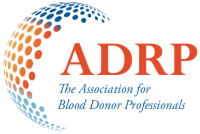Assessing unintentional creation of bias against men who have sex with men as a function of exposure to blood donor screening questionnaire: A national randomized controlled trial
Full article available for purchase in link provided
Authors
Alexander Hofkirchner, Taylor Kohut, Sheila F. O’Brien, William A. Fisher
Abstract
Background
Canadian Blood Services (CBS) screens donors based on group status (e.g., men who have sex with men, MSM) instead of specific, high-risk sexual practices (e.g., occurrence of condomless sex). The MSM screening question is embedded in a cluster of questions about stigmatized attributes such as history of imprisonment and illicit substance use. This juxtaposition of the “MSM question” and stigmatized attributes may unintentionally cause blood donors to perceive MSM more negatively. The aim of this research is to determine whether the CBS donor eligibility questionnaire generates negative bias against MSM.
Study Design and Methods
A national, randomized online study of 903 CBS donors was conducted. Participants completed either the existing blood donor eligibility questionnaire or a modified donor questionnaire that repositioned the MSM question among neutral questions. After completing the existing or modified questionnaire, bias against MSM was measured using the sexuality implicit association test (IAT) and Modern Homonegativity Scale – Gay Men (MHS-G). Lastly, participants estimated prevalence rates among MSM of certain stigmatized behaviors.
Results
Participants who completed the existing donor eligibility questionnaire more strongly associated gay men with negative attributes on the IAT (pone-tailed = .045), suggesting question position generated implicit negative bias toward MSM. Responses to the MHS-G (pone-tailed = .506) and prevalence estimation task (p = .443) indicated that question order had no significant impact on explicit bias.
Discussion
Positioning the MSM screening question among stigmatizing questions creates implicit negative bias against MSM. Policy makers should be mindful of question positioning when designing donor questionnaires.
May 27, 2022
Related Resources
Engaging blood donors as advocates Social media preferences and associations with marketing
Background: Various critical medical procedures would become impossible without blood donations—saving lives in emergencies, surgeries, and chronic conditions like thalassemia. Therefore, it seems crucial to enhance donor recruitment and ensure…
Rethinking the role of older donors in a sustainable blood supply
INTRODUCTION Many countries, particularly high human development index countries, are facing the challenge of an aging population.1 For Blood Collection Agencies (BCAs) in these countries, an aging population poses two…


